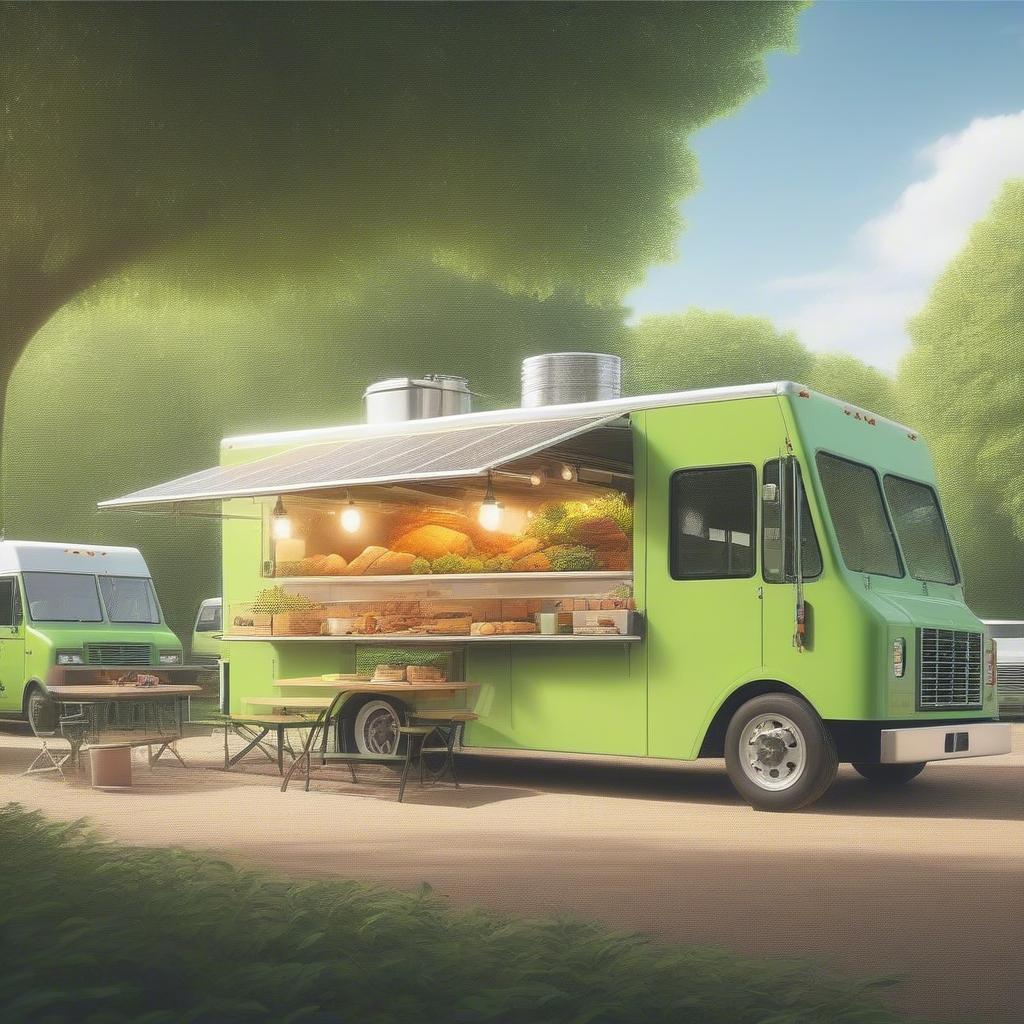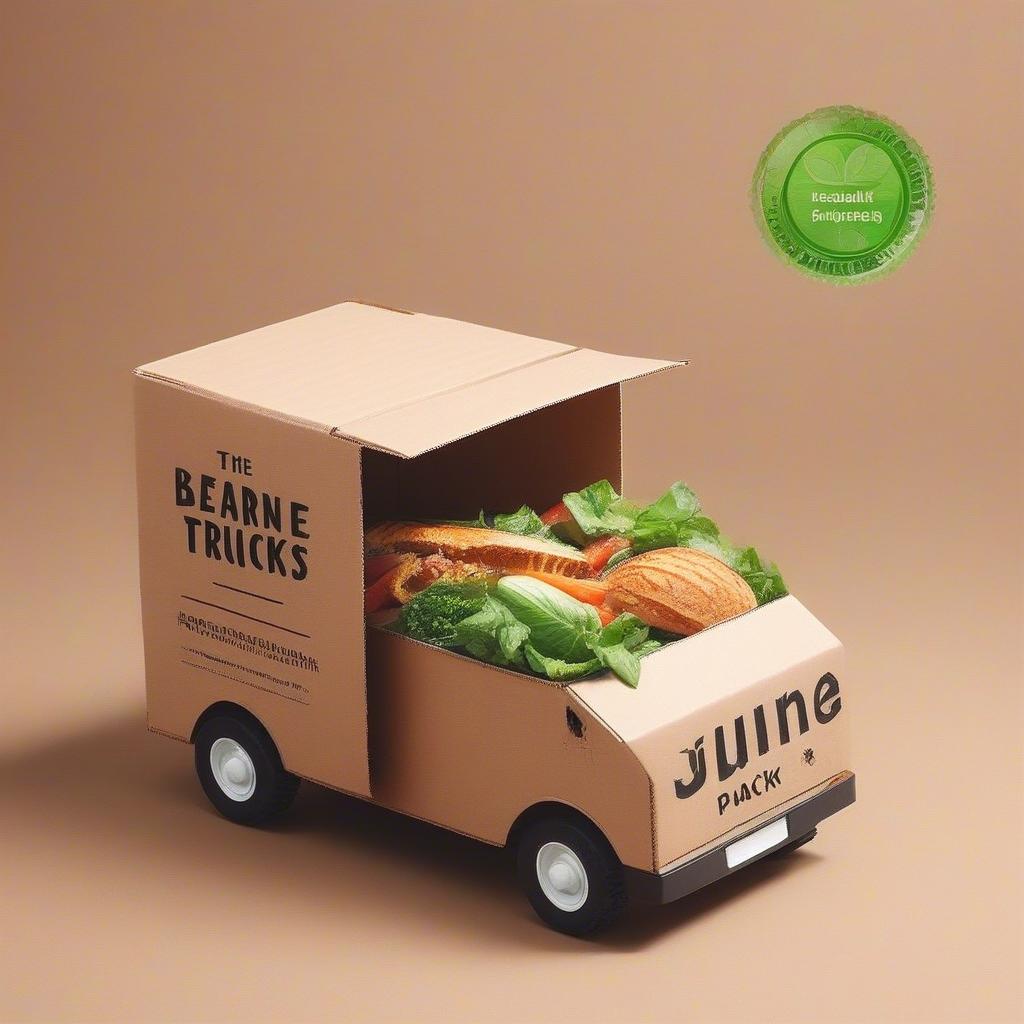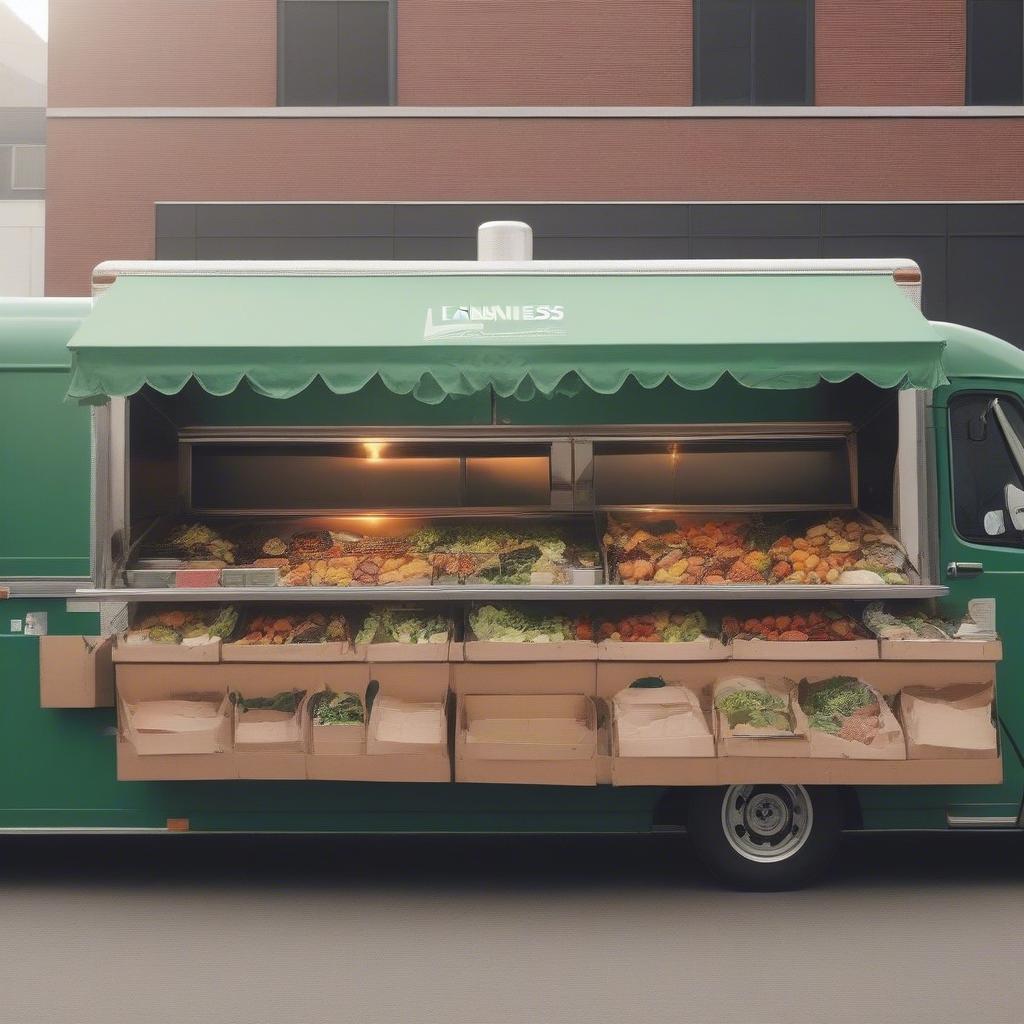
Running a food truck is an incredible adventure – the freedom of the open road, the joy of serving delicious food, and the satisfaction of being your own boss. But like any business, it has its environmental footprint. What if you could minimize that impact while simultaneously saving money and boosting your brand image? Enter: renewable energy. This isn’t just a trendy buzzword; it’s a practical, impactful way to operate your food truck business. Let’s dive into how you can harness the power of the sun, wind, and more to keep your kitchen rolling, sustainably.
Why Go Green? The Compelling Case for Renewable Energy in Food Trucks
Before we get into the “how,” let’s explore the “why.” Why should you even consider switching to renewable energy for your food truck? It’s about more than just feeling good; it’s a smart business move.
Environmental Responsibility: Reducing Your Footprint
The most obvious reason is environmental responsibility. Traditional power sources contribute significantly to greenhouse gas emissions, which contribute to climate change. By adopting renewable energy, you’re actively participating in creating a cleaner, healthier planet. You’re reducing your reliance on fossil fuels and demonstrating that your business cares about the environment. This resonates with the growing number of consumers who are increasingly conscious about sustainability. Using renewable energy as part of your food truck operation also positions your food truck as a green business.
Cost Savings: A Long-Term Investment
While the initial investment in renewable energy systems might seem daunting, it’s important to think long term. Over time, you’ll see substantial savings on your energy bills. Traditional generators, which many food trucks rely on, are not only noisy but also require constant fuel purchases. Solar panels, on the other hand, harness free energy from the sun. This reduces your reliance on fuel, minimizes operating costs and makes your food truck sustainability a more achievable and effective goal. Think of it like paying off your energy bill upfront, and reaping the benefits for years to come.
Brand Enhancement: Attracting Eco-Conscious Customers
In today’s market, consumers are increasingly drawn to businesses that align with their values. A commitment to food truck sustainability, demonstrated through the use of renewable energy, is a powerful marketing tool. It sets you apart from the competition, attracting eco-conscious customers who are willing to support businesses that share their values. You’re not just selling food; you’re selling an experience and a brand that resonates with environmental awareness. This approach will enhance your food truck sustainability status and attract a loyal customer base.
Increased Independence and Flexibility
With renewable energy options, particularly solar, you can become less reliant on external power sources. This increased independence means you have more flexibility in where you can operate your food truck. No longer are you tied to locations with access to electrical outlets, you can serve your unique menu in more remote areas and public parks. This level of flexibility can give you an edge in the competitive food truck landscape.
Exploring Renewable Energy Options for Your Food Truck
Now that you understand the benefits, let’s delve into the various renewable energy options you can consider for your food truck. Each has its own set of advantages and disadvantages, so careful consideration is key.
Solar Power: Harnessing the Sun’s Energy
Solar power is arguably the most popular and accessible renewable energy source for food trucks. It involves installing solar panels on your truck’s roof to capture sunlight and convert it into electricity.
How Solar Panels Work on a Food Truck
Solar panels are made of photovoltaic cells that generate direct current (DC) electricity when exposed to sunlight. This DC electricity is then converted to alternating current (AC) electricity using an inverter so it can power your truck’s appliances.
Benefits of Solar Power
- Abundant and Free Energy: The sun is a virtually limitless energy source.
- Quiet Operation: Unlike generators, solar panels operate silently.
- Low Maintenance: Solar panels require minimal maintenance once installed.
- Reduced Fuel Costs: Eliminates the need for traditional fuel-powered generators.
- Environmental Friendliness: Significantly reduces your carbon footprint and contributes to food truck sustainability.
Considerations for Solar Power
- Initial Investment: The upfront cost of solar panels and related equipment can be significant.
- Space Requirements: Solar panels need ample roof space to generate enough power.
- Weather Dependency: Solar power production is affected by cloud cover and the amount of sunlight.
- Battery Storage: You’ll need batteries to store excess energy for use on cloudy days or at night, adding to the cost.
Practical Steps for Implementing Solar Power
- Assess Your Energy Needs: Calculate how much power your appliances consume to determine the size of the system you need.
- Choose Your Solar Panels: Select panels that fit your roof space and energy requirements.
- Select a Battery System: Choose batteries that can store enough energy to power your truck during non-sunny hours.
- Install the System: Hire a qualified installer to ensure the system is installed safely and correctly.
- Monitor and Maintain: Regularly inspect your system for any issues.
Wind Power: Capturing the Breeze
Wind power uses a turbine to convert wind energy into electricity. While less common than solar on food trucks due to practicality, it can be a viable option in certain windy regions.
How Wind Turbines Work on a Food Truck
Small-scale wind turbines can be mounted on your food truck to harness wind power, which turns blades and generates electricity, however, they are usually impractical for moving vehicles.
Benefits of Wind Power
- Renewable Energy: Harnesses the power of the wind, a sustainable energy source.
- Reduces Reliance on Fossil Fuels: Reduces your dependency on gas powered generators and traditional electricity.
Considerations for Wind Power
- Space Limitations: Finding a secure and functional place for a turbine on a food truck can be a challenge.
- Wind Dependency: Requires consistent and adequate wind speeds.
- Safety: Moving turbines can be hazardous and must be carefully secured.
- Noise: Wind turbines can generate noise, which may be undesirable.
- Aesthetics: Wind turbines can change the visual appeal of your truck.
Practical Steps for Implementing Wind Power
- Assess Your Location: Determine if your operating location has enough wind for a turbine to be effective.
- Select a Turbine: Choose a compact and suitable turbine for your food truck.
- Install Safely: Professionally install the turbine for safety and performance.
- Monitor and Maintain: Check the turbine regularly for optimal functionality.
Other Renewable Energy Options
While solar and wind are the most common options, here are some other ideas to explore for achieving greater food truck sustainability.
- Bio-diesel: A fuel made from vegetable oils or animal fats, can be used in some generators or cooking processes.
- Propane: Can be used for cooking appliances, it produces lower greenhouse emissions compared to petrol.
- Energy Efficient Appliances: Using energy star rated appliances can reduce overall energy consumption.
Practical Strategies for Implementing Renewable Energy
Now that you know the options, let’s focus on actionable strategies for implementing renewable energy in your food truck.
Start Small and Scale Up
You don’t have to transition to a fully renewable energy system overnight. Start with a manageable step, such as installing a small solar panel array to power your lighting and refrigeration. As you become more comfortable and see the benefits, you can gradually increase your renewable energy capacity. This incremental approach makes the transition more affordable and less daunting.
Work with Qualified Professionals
Installing and maintaining renewable energy systems requires expertise. Working with qualified professionals ensures that your system is set up correctly, safely, and efficiently. Research and choose installers with experience in mobile systems and ensure that you’re compliant with local regulations. This way you are getting the best results, and making sure that you are contributing to food truck sustainability the right way.
Invest in Energy-Efficient Equipment
Pairing renewable energy systems with energy-efficient appliances is crucial for maximizing your energy savings. Look for Energy Star-certified appliances that consume less power. This reduces your overall energy demands, allowing you to use a smaller, more affordable renewable energy system. The use of energy efficient equipment is key to making your business a green business.
Track Your Energy Consumption
Monitor your energy consumption regularly to identify areas where you can make further improvements. This will help you optimize the use of your renewable energy systems and identify potential savings. Data helps you make more informed choices, and ensures that your energy consumption is contributing to the goal of food truck sustainability.
Educate Your Customers
Use your transition to renewable energy as an opportunity to educate your customers about sustainability. Share your journey on social media, display information about your green practices on your truck, and talk to your customers about your commitment to a cleaner environment. This will strengthen your brand image and attract customers who care about sustainability, solidifying your image as a green business.
Templates & Resources for Success
Here are some templates and resources to help you manage the transition to renewable energy:
- Energy Consumption Calculator: Create a spreadsheet to track the energy consumption of each of your appliances, including voltage, current, and power consumption to properly calculate your energy requirements.
- Solar Panel Sizing Guide: Use online resources or consult an installer to help you estimate the number of solar panels you need based on your energy needs.
- Budget Template: Create a detailed budget outlining the costs of panels, inverters, batteries, and installation to understand your investment.
Learn Business: Your Partner in Sustainable Success
At Learn Business, we understand the challenges of running a small business, especially when aiming for sustainability. We offer a range of guidance and templates to help you navigate these challenges, specifically tailored to your unique needs.
How Learn Business Can Help You Achieve Food Truck Sustainability
- Business Plan Templates: Access templates to create a sustainable business plan, outlining your renewable energy goals, budget, and timelines.
- Financial Management Resources: Manage your finances effectively with our financial templates, including cash flow projections and expense trackers, helping you manage the investment in renewable energy.
- Marketing Support: Enhance your brand image with our templates to highlight your commitment to sustainability, and attract eco-conscious customers.
- Expert Guides: Get expert guidance on renewable energy implementation, covering everything from system selection to maintenance best practices.
- Personalized Support: Our team can provide customized advice and support to assist you in your unique business journey, ensuring you achieve your food truck sustainability goals.
Learn Business is here to support you in transforming your food truck into a sustainable and thriving enterprise.
Conclusion: Powering a Greener Future for Your Food Truck
Transitioning to renewable energy is not just a trend, it’s a necessary step for creating a more sustainable future. By adopting green business tips, you can reduce your environmental impact, save money, and attract a loyal customer base. Whether you start with solar panels or explore other renewable energy options, taking steps towards food truck sustainability is a worthwhile investment in your business and the planet.
Start planning your transition today and join the movement towards a cleaner, greener future for the food truck industry, showing that your food truck is a green business. With the right planning, resources, and determination, you can power your mobile kitchen sustainably. Let the journey towards a more eco-friendly, and ultimately more profitable, business begin!



Leave a Reply